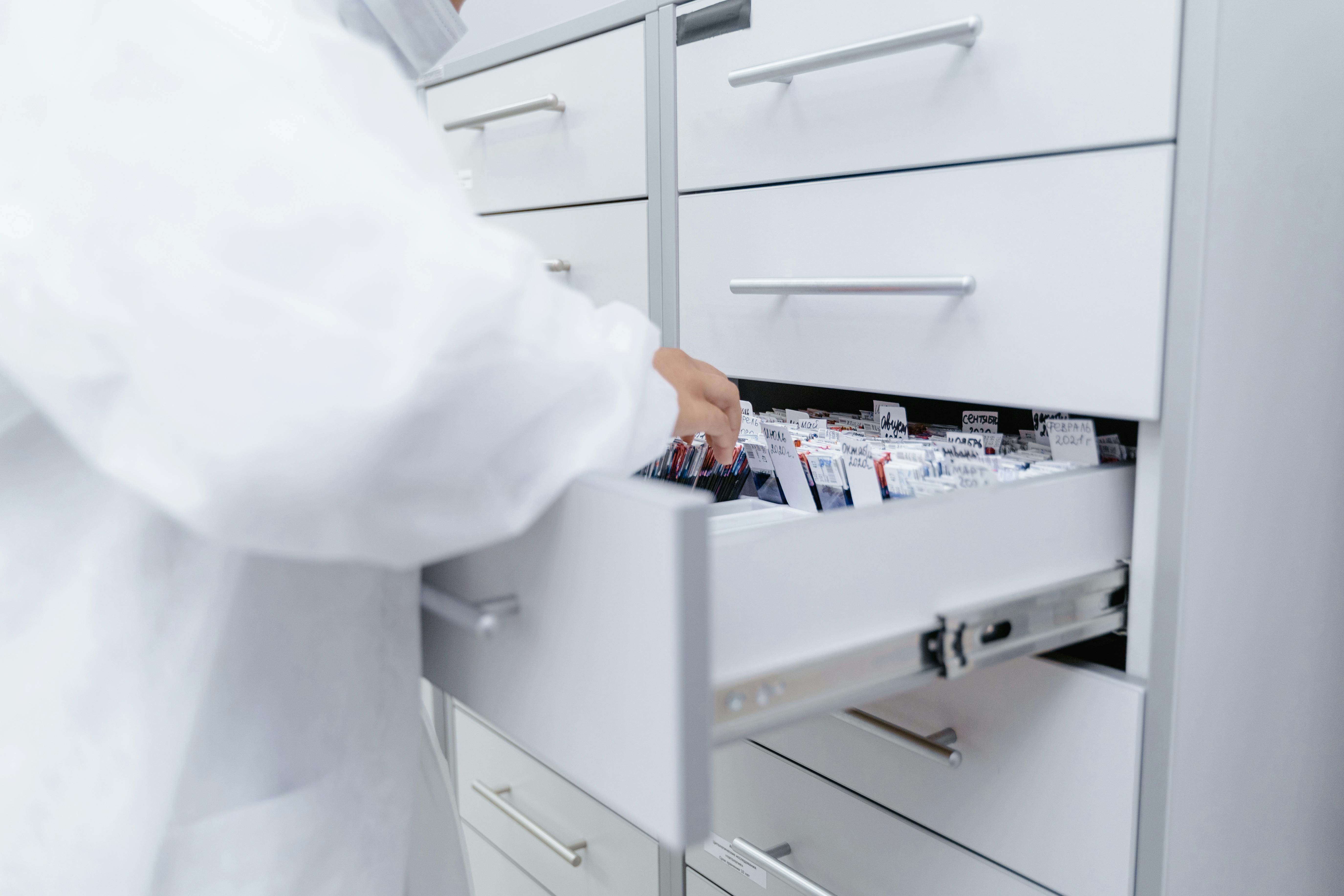.png)
IVF
Can I Do IVF While On a GLP-1 Medication Like Ozempic®?
March 5, 2024
Last updated:
October 31, 2024
.png)
If you're considering In Vitro Fertilization (IVF) while using or contemplating a GLP-1 medication, like Ozempic®, you’ll want to understand how these treatments might interact.
GLP-1 medications are widely considered safe and have been approved by regulatory bodies like the FDA. But, they aren’t safe for everyone. And they may interact with other medications.
Let’s review the potential benefits, concerns, and important factors you should discuss with your doctors before making any decisions about GLP-1 medication use in conjunction with IVF.
What are GLP-1 medications?
GLP-1s are a class of medications designed to aid in weight loss and blood sugar management, which can indirectly have positive effects on fertility.
Glucagon-like peptide-1 (GLP-1) is a naturally occurring hormone in the body that plays important roles in digestion, blood sugar regulation, and appetite control. GLP-1 receptor agonists are a class of medications that mimic the effects of GLP-1, leading to several benefits including weight loss, improved blood sugar control, and potential cardiovascular benefits. Common examples of GLP-1 medications include semaglutide (Wegovy®, Ozempic®), liraglutide (Victoza®, Saxenda®), dulaglutide (Trulicity®), tirzepatide (Mounjaro®), and others.
While it feels like these medications have shown overnight success for help with weight loss, they’ve actually been around for a long time. Initially prescribed for the treatment of type 2 diabetes, their weight-loss potential became a notable side effect. This led to further research, higher-dosage formulations specifically for weight management, and the widespread popularity we see today.
GLP-1 medications, obesity, and fertility
Obesity is a known factor that can negatively impact fertility treatment outcomes in both men and women. It's associated with conditions like Polycystic Ovarian Syndrome (PCOS), hormonal imbalances, and changes to the uterine lining that can reduce the chances of successful embryo implantation.
Since GLP-1 medications aid in weight loss and blood sugar control, they have the potential to improve some of the underlying factors that contribute to infertility. However, more research is needed to really understand how GLP-1 medications can impact IVF outcomes.
Can you do IVF if you are on GLP-1 medications?
It's best to discuss the use of GLP-1 medications directly with both the doctor who prescribes them as well as your fertility doctor. Many doctors recommend pausing GLP-1 medications for a few weeks before procedures involving sedation or anesthesia, including the egg retrieval portion of IVF, to reduce potential risks.
The reason being, there have been reports that the delay in stomach emptying due to the GLP-1 medication could be associated with an increased risk of regurgitation and aspiration of food into the airways and lungs. And, because you are unconscious, you can’t clear your lungs or eliminate the obstruction on your own. There is currently a lack of scientific data on how GLP-1 medications affect patients having procedures like IVF, so most doctors like to play it safe.
Can you take GLP-1 medications while pregnant?
Even if you're planning to pause GLP-1 medications like Ozempic® for your egg retrieval during IVF, your doctor may not recommend you get back on them after the retrieval if you plan on getting pregnant. That is because these medications are not currently recommended during pregnancy or lactation. The full safety profile of GLP-1 medications is still under investigation.
This means that most OBGYNs will advise you to discontinue GLP-1 medications before attempting to conceive, whether unassisted or through IVF. They will work with you to create a safe and optimal plan for your fertility and pregnancy journey.
Summing it up
While GLP-1 medications offer benefits for weight loss and blood sugar control that may indirectly help with fertility, their direct impact on IVF outcomes and safety during pregnancy needs further research. You’ll want to have open discussions with your fertility doctor, your prescribing doctor, and potentially your future OBGYN about the best medication strategy for your individual circumstances.
Here are some key points to remember:
- Temporary pause: You might be advised to take a break from GLP-1 medications prior to your egg retrieval procedure.
- Discontinuation before pregnancy: There is not enough human data yet to support GLP-1 medications during pregnancy and lactation, so currently it is not recommended.
- Collaboration is key: Work closely with all your doctors to make the safest and most informed decisions regarding your medication use, fertility treatment, and any pregnancy plans.
Research into the relationship between GLP-1 medications and fertility is ongoing. As we gather more data, clearer guidelines may emerge regarding safe and effective use of these medications alongside IVF treatment. It's always encouraged to consult with your doctors for the latest information and recommendations specific to your situation. We wish you all the best!


Dr. Meera Shah
Meera Shah, MD, FACOG, is a double board-certified OBGYN and reproductive endocrinology and fertility specialist at NOVA IVF in Mountain View, California. She is a Founding Medical Advisor at Cofertility. Dr. Shah has authored numerous research articles on topics ranging from fertility preservation, pregnancy loss, reproductive genetics, and ethnic differences in IVF outcomes. Her medical practice incorporates the highest level of evidence-based medicine and the most cutting edge technologies to optimize outcomes for her patients. Dr. Shah applies this approach to her work with Cofertility, ensuring that Cofertility remains up-to-date on latest medical advancements and research in third-party reproduction and reproductive endocrinology in general. When Dr. Shah isn’t busy working with her patients at NOVA IVF, she enjoys playing pretty much any sport, learning new piano pieces on YouTube, and spending quality time with her husband and three boys. You can find her on Instagram providing fertility-related advice and education at @dr_meerashah.
Read more from
Dr. Meera Shah






.png)

